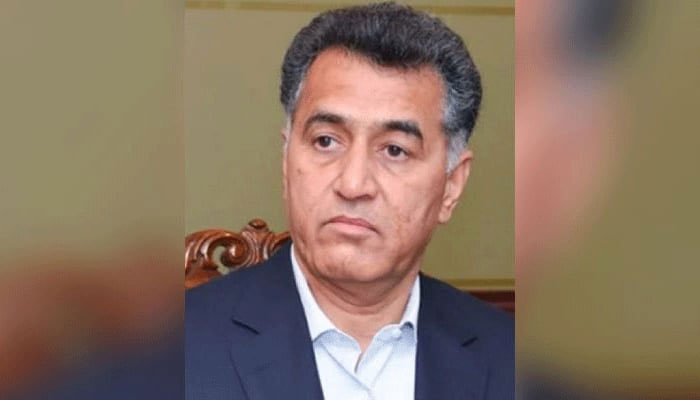Accountability at the highest ranks: a turning point for military leadership
This arrest will bolster confidence in the military’s commitment to the principles of justice and accountability
ISLAMABAD: The unprecedented arrest of a former Director-General Inter-Services Intelligence (DG-ISI) will be seen as a move towards greater accountability of the military leadership, which has traditionally been seen as above the law. This action sets a new precedent for holding even the highest ranks within the military establishment accountable.
This arrest also serves as a powerful reaffirmation of the principle that no one is exempt from the rule of law, regardless of their position within the military’s uppermost echelons. By bringing a former DG-ISI to account, this move underscores the critical importance of discipline and strict adherence to the chain of command, thereby reinforcing military cohesion and bolstering respect for leadership. In my view, this development will serve to fortify the chain of command.
This arrest will bolster confidence in the military’s commitment to the principles of justice and accountability. When the chain of command demonstrates a resolute dedication to enforcing discipline and upholding the military code within its ranks, it strengthens the trust and confidence of both officers and enlisted personnel. Recognizing that leadership operates with fairness and impartiality can significantly elevate morale, fostering a deeper sense of loyalty and esprit de corps throughout the ranks.
The arrest is a demonstration of internal unity. The arrest will shift the focus back to core military values like professionalism, duty, and loyalty to the nation. The military’s decision to arrest a high-ranking officer will be interpreted as a demonstration of internal unity and resolve. It signals that the institution stands together against any elements that could undermine its reputation or effectiveness, thereby boosting morale. Yes, while the arrest will surely bolster internal military cohesion and demonstrate a commitment to accountability, it also carries some political ramifications. The detention of a former DG-ISI could deepen existing political rifts between the military and a particular political party’s leadership. This move will be perceived by a particular political party as being politically motivated, potentially leading to accusations of interference in Pakistan’s political process.
However, evidence on the ground does not support the stance of this particular political party, suggesting that the narrative of political targeting may be more rhetoric than reality. The arrest is a potential catalyst for reinforcing the values and unity that underpin military cohesion and morale, ultimately strengthening the institution from within. To be certain, the arrest of a former DG-ISI, while unprecedented, serves as a decisive moment in reaffirming the military’s unwavering commitment to the principles of justice, discipline, and accountability. It reinforces the ethos that no rank or position is beyond the scope of accountability. This action not only enhances internal cohesion and morale but also sends a clear signal of the military’s resolve to uphold its core values, regardless of the external political landscape. By standing united against any forces that could undermine Pak Army’s mission, the military leadership has ensured its continued effectiveness and loyalty to the nation. Yes, Pak Army will emerge stronger and more resilient in the face of both internal and external challenges.
-
 King Charles ‘very Much’ Wants Andrew To Testify At US Congress
King Charles ‘very Much’ Wants Andrew To Testify At US Congress -
 Rosie O’Donnell Secretly Returned To US To Test Safety
Rosie O’Donnell Secretly Returned To US To Test Safety -
 Meghan Markle, Prince Harry Spotted On Date Night On Valentine’s Day
Meghan Markle, Prince Harry Spotted On Date Night On Valentine’s Day -
 King Charles Butler Spills Valentine’s Day Dinner Blunders
King Charles Butler Spills Valentine’s Day Dinner Blunders -
 Brooklyn Beckham Hits Back At Gordon Ramsay With Subtle Move Over Remark On His Personal Life
Brooklyn Beckham Hits Back At Gordon Ramsay With Subtle Move Over Remark On His Personal Life -
 Meghan Markle Showcases Princess Lilibet Face On Valentine’s Day
Meghan Markle Showcases Princess Lilibet Face On Valentine’s Day -
 Harry Styles Opens Up About Isolation After One Direction Split
Harry Styles Opens Up About Isolation After One Direction Split -
 Shamed Andrew Was ‘face To Face’ With Epstein Files, Mocked For Lying
Shamed Andrew Was ‘face To Face’ With Epstein Files, Mocked For Lying -
 Kanye West Projected To Explode Music Charts With 'Bully' After He Apologized Over Antisemitism
Kanye West Projected To Explode Music Charts With 'Bully' After He Apologized Over Antisemitism -
 Leighton Meester Reflects On How Valentine’s Day Feels Like Now
Leighton Meester Reflects On How Valentine’s Day Feels Like Now -
 Sarah Ferguson ‘won’t Let Go Without A Fight’ After Royal Exile
Sarah Ferguson ‘won’t Let Go Without A Fight’ After Royal Exile -
 Adam Sandler Makes Brutal Confession: 'I Do Not Love Comedy First'
Adam Sandler Makes Brutal Confession: 'I Do Not Love Comedy First' -
 'Harry Potter' Star Rupert Grint Shares Where He Stands Politically
'Harry Potter' Star Rupert Grint Shares Where He Stands Politically -
 Drama Outside Nancy Guthrie's Home Unfolds Described As 'circus'
Drama Outside Nancy Guthrie's Home Unfolds Described As 'circus' -
 Marco Rubio Sends Message Of Unity To Europe
Marco Rubio Sends Message Of Unity To Europe -
 Savannah's Interview With Epstein Victim, Who Sued UK's Andrew, Surfaces Amid Guthrie Abduction
Savannah's Interview With Epstein Victim, Who Sued UK's Andrew, Surfaces Amid Guthrie Abduction




